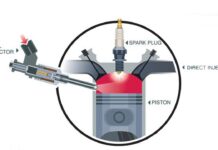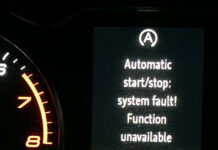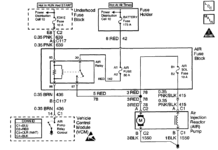What is an Ambient Air Temperature Sensor? What are the symptoms of an AAT sensor malfunction? How to identify a sensor failure in ambient air temperature
What is an Ambient Air Temperature Sensor?
Modern cars are equipped with sophisticated heating and air conditioning systems that can maintain comfortable interior temperatures. The air conditioning system is activated and controlled by a number of sensors. The AAT sensor is one of the most crucial sensors that plays a critical role in the operation the air conditioner system.
The ambient air temperature sensor measures the temperature outside the passenger room. It is usually located near the front bumper. This sensor sends data to the HVAC system to control the car’s interior temperatures. A small thermometer indicator is built into the cabin that allows passengers and drivers to monitor the outside temperature. This information is important to warn drivers in the event of severe weather conditions, such as freezing or icing.
What are the symptoms of AAT Sensor Failure?
The air conditioner’s operation is dependent on the ambient temperature sensor. If you suspect it is not working properly, you should replace it. The driver will be notified in advance if the ambient temperature sensor is defective. These are the most common symptoms of a malfunction:
- – Air conditioner auto mode doesn’t work
- – Inconsistent, or no cooling
- A/C compressor is not working
- – The temperature thermometer is not reading correctly or has been completely canceled
Air Conditioning System (AC), Auto Mode Doesn’t Operate
Modern cars have air conditioning systems that adjust and regulate the cabin temperature automatically. To keep the cabinet at the right temperature, the AC system uses data obtained from the AAT sensor. If the AAT sensor goes out, the system will not be able to calculate automatically if it isn’t available. Automatic mode won’t work if the AAT sensor fails.
Inconsistent Cooling or No Cooling
Inconsistent cooling is another sign of a bad AAT sensor. The AAT sensor is responsible for the automatic operation of the air conditioner system. In the event of a malfunction, it could affect the cooling capacity of the system. The cabin temperature will change within a few minutes of turning on the AC. The AC system could have trouble adjusting the cabinet temperature if the AAT sensor malfunctions or sends out erroneous messages.
Faulty Outside Temperature Sensor
The incorrect operation of the cabin’s thermometer is another sign that the AAT sensor has gone out of control. The AAT sensor usually manages a small screen that displays outside temperature in most vehicles. This information is used to help the driver predict road conditions and prevent accidents such as icing. The AAT sensor can also send inaccurate information to the display, which will adversely affect the AC system’s performance.
Air Conditioning compressor not working
The air conditioner system must be activated before you turn on the defroster. This will help to remove moisture from the air. When the outside air is too cold, the oil in the A/C compressor becomes thicker and the flow of the compressor decreases. If this happens, the compressor can cause the circuit to fail and the compressor to stop working. The AAT sensor prevents the compressor from activating until the temperature has been set. This is to ensure safety. The sensor can fail, and the compressor will not work if it isn’t working properly.
On – Engine Malfunction Light
The check engine light will come on if the ambient temperature sensor is not working properly. The vehicle’s main computers (PCM/ECM/ECU) continuously monitor the AAT sensor. It stores fault codes in its memory, and if it detects a malfunctioning signal from the sensor, or detects an issue with the circuit, it illuminates the check engine lamp to notify the driver. The check engine light can come on for many reasons. To ensure correct diagnosis and repair of the problem, it is important to read any fault codes in the PCM’s RAM. P0070 to P0071 are fault codes relating to the ambient air temperature sensor.
The ambient temperature sensor is hardy and durable. It can last for as long as 150,000 km in worst cases and up until 250,000 km when working properly. It does not impact the vehicle’s driveability if it fails. It is possible for the cabin temperature to rise above the recommended level, which can cause discomfort for the driver and passengers.

















